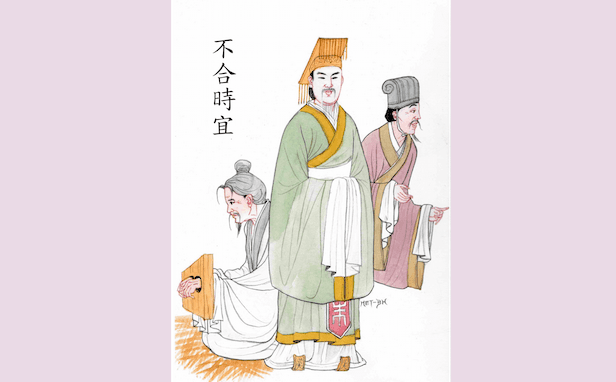The Chinese idiom 不合時宜 (bù hé shí yí), which translates as “behind the times,” is used to describe a person or something not conforming to the commonly accepted standards, in lack of good taste, or not suited to the current need. It originated from the Book of Han (1) in writings about Emperor Ai.
Emperor Ai (27 B.C.–1 B.C.) was adopted by Emperor Cheng, who had no child of his own. He succeeded to the throne when he was 20 years old. Once he became emperor, he was often sick.




